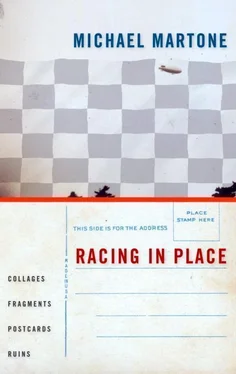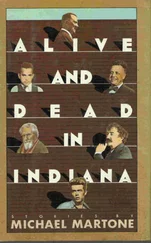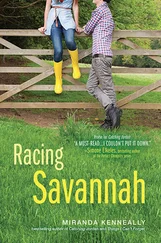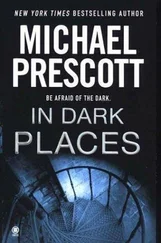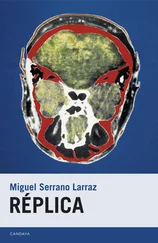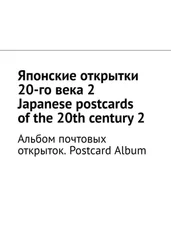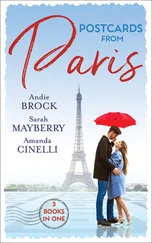Now I think of another moment, another scene from when my son was much younger. One day, I was driving in the car. My son was strapped into his car seat in the back. As I adjusted the mirror it reflected him, stuffed into what seemed to be an undersized bucket. I was taken with how he had changed, grown larger, and I considered for a second the disclaimer printed on the outside mirrors of such reflected distortion: Objects in mirror are closer than they appear. But I couldn't help asking him, "When did you grow up?" Without hesitating he answered, "Night time."
5
Living in Oblivion is a movie about making a movie. There is a dwarf in one scene of the movie being made in the movie. It is a dream sequence, and the dwarf hired to play a dwarf in the dream is directed to laugh. The actor asks the director for his motivation. And the director shrugs, offering only that it is a dream. After several unsuccessful takes the dwarf finally erupts, condemning the use of dwarfs in movies, in stories. Dwarfs, he says, are always in cinematic dreams. The only work he can get as a dwarf actor is in playing a dwarf in a dream. "When you dream," he asks the director, "do your dreams have a dwarf?" The dwarf actor eyes the director, who is considering the question. "I'm a dwarf," the dwarf says, "and I don't even dream of dwarfs."
I wonder sometimes why Disney World and all the worlds of Disney are such hits. Why do certain things take us? Why do certain aesthetic arrangements succeed? Why, of all the flavors in the world, should a cola catch on? Why that cartoon mouse or that cartoon dog? The images created by Disney crowd out any alternative Alices or Snow Whites or even Dwarfs. Sometimes I think it is genetic, that people are predisposed, attracted naturally to certain combinations of things, hard-wired to respond instinctually as they do to an infant, say, or a puppy. I read somewhere of Mickey's graphic evolution, his transformation from the ratlike steamboat Mickey to the high-foreheaded, big-eyed, shorter-nosed, babylike Mickey we all know. And love. Disney World is the place dying children wish for. As a last wish! Stanley Elkin's novel The Magic Kingdom even features this curiosity. A tour of seven terminal children (their maladies roughly analogous to the Disney dwarfs' characteristic monikers-the "Sneezy" is a child with cystic fibrosis, the "Sleepy" child has narcolepsy, etc.) is trucked off to the Florida theme park. The children in the novel try to make it clear that this manufactured happiness of this happiest place on earth is not making them happy. It isn't their last wish at all. They long for a chance to grow up, of course, and seek in the sexless magic kingdom a chance for sex. An ultimate ride, their first and last roll in the hay. They desire to desire. They wish their illicit wish.
Disney World is a deathless place, simply enough. And I think of all the dying children who will never grow up, sentenced not only to an early death but also to an adult's version of an early death. Better to die than to grow up. There is, in the real Magic Kingdom, this studied confusion between life and death-the robots and androids, the elaborate costumed characters, the endless parades, the "cast members" sweeping, sweeping and smiling, smiling. The Main Streets ageless, frozen in time just in time.
Perhaps it was just the names. Disney was the first to name the dwarfs in the old story. No, I take that back. According to Richard Holliss and Brian Sibley in their book Walt Disney's Snow White and the Seven Dwarfs and the Making of the Classic Film, an English artist, John Hassall, did name them in an illustrated edition of the story in 1921. He went with domestic utensils and pantry products-Plate, Spoon, Knife, Fork, Wine, Bread, and Stool. Holliss and Sibley include the brainstorming list of names from Disney's preproduction. Scrappy, Doleful, Crabby, Wistful, Daffy, Hoppy, Soulful, Awful, Graceful, Flabby, Goopy, Puffy, Hotsy, Shifty, fifty names in all. On the list are five of the final seven. Dopey and Doc were afterthoughts, it seems. A doctor friend of mine told me she always liked Doc, of course, not just out of professional courtesy but because he is the only noun name among a legion of adjectives. The adjectives grow into nouns once they are used as names, characteristic becoming character. My son could do a pretty fair impression of Grumpy. I would egg him on. "Be Grumpy," I would say, and he would cross his arms over his chest and lower his brow and frown, pouting, tilting his head down to look at you through silted eyelids. This was his face when he was truly grumpy, when he would register his frustration perhaps at having the dwarfs' march choreography go wrong. I was taken by the performance. I recognized myself in his clouded visage. After working for hours on a rustic portrait of the dwarfs he would howl and destroy his work. Not right! Not perfect and turn back to the same task. How silly, I thought, unable to see what he saw, unable to see the flaw in what he saw. Until I saw myself in the scaled down drama before me, my own unselfconscious grumpiness, my idiosyncratic grumbling over a spoiled draft of an essay or story I was working on, an adult version of this play. These names, these dwarf names, are like labeled portals, doorways into adult attributes. They are gateways between these separate worlds of child and adulthood. Bashful, to me, seems the most adult, a late stage of maturation, the growing awareness of self. I am thinking of those experiments with children, their foreheads smudged with ashes without their knowing, released into a room with mirrors. Only those at a certain age will the notice the smudge on the forehead in the mirror and then try rub it off. The rest are oblivious.
6
Growing up, my son continued to stage dramas. He acted in his high-school plays. I watched him in Neil Simon's The Good Doctor, a play made up of seven plays based on the stories of Anton Chekhov. There is in The Good Doctor a continuity character named "Anton Chekhov" who often narrates, in a stage manager way, the various vignettes. In the final play within a play, my son played the young Anton Chekhov, and the Anton Chekhov character took on the role of Anton Chekhov's father. The action presents the moment Anton Chekhov's father takes his son, Anton Chekhov, to a brothel on his birthday to make him a man. I sat in the high-school theater surprised, a little taken aback at the maturity of the theme. My son was a freshman. I hadn't known what would transpire on stage. I had asked him if he would like me to run lines with him while he was in rehearsal, and he had always refused. So now I watched my son take part in a depiction of a father facilitating his young son's initiation into manhood. And this construction of the drama contained within it this strangeness, this reversal of roles-the son in retrospect imagining the father at the moment the son was to become a man. I watched from the darkness. My son was very good, I thought, playing a son on the cusp of growing up. He had been in other plays. I see now he had been in plays all his life. He had started by auditioning for parts in the local children's theater. He played the mysterious old man in James and the Giant Peach who brings the magic seeds to James. But here he was playing a son hesitating on a threshold, a gateway concocted by his old man, who was having his own second thoughts about this initiation. But in the end, the play I watched actually enacts its opposite. It takes a turn. It is a false coming-of-age story. The epiphany is that there is no epiphany. The moment of epiphany has come and gone. Instead, the "father" and the "son" realize that now is not the time, that there still is time. Before they even enter it, they turn away from the brothel; they turn back home. Dramatically this turn is done with a name. Turning away from the brothel, the father calls his son back from the brink with the affectionate diminutive. "Antasha," he says, smoothing the boy's hair. My son's real name is Anthony, named for my father, though he has always gone by his middle nickname Sam. After the show I greeted him in the bright sunlight-it had been a matinee-praising his performance, his work. I was surprised by the story. I had been fooled completely, I told him. I believed everything. Outside the theater, in the sunlight, I wanted to go back in time. I wanted time to stand still. "Antasha," I said to him in his full makeup and costume, "Antasha, that was perfect."
Читать дальше
